TRAINING
Slow the pace, improve the mindset
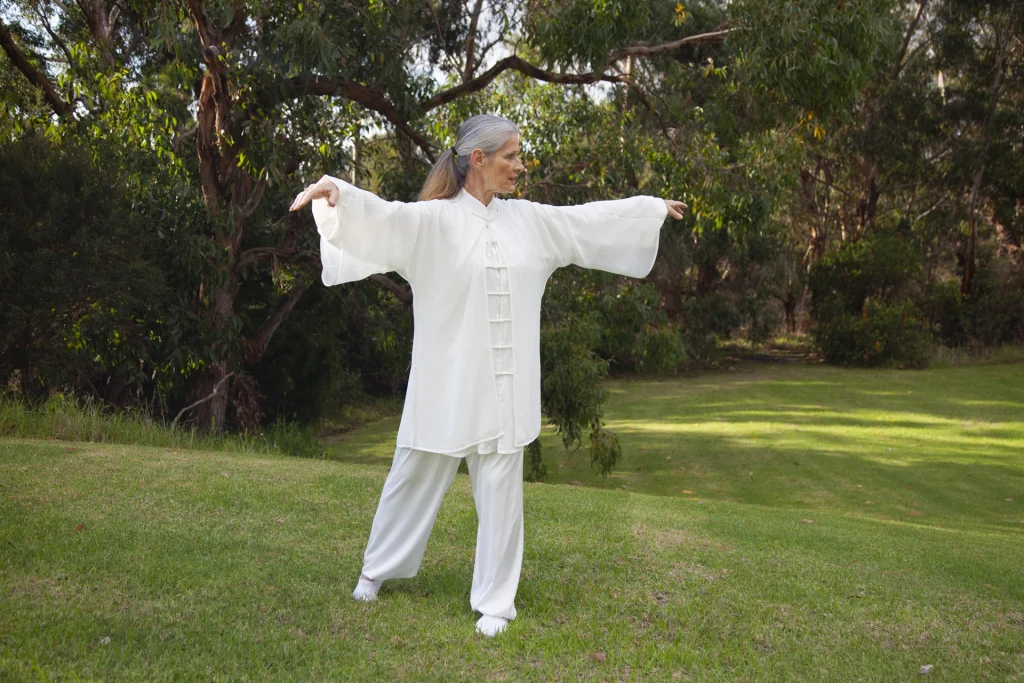
Our clients come to us for many different reasons: weight loss, increase cardio fitness or muscle mass, specific training for an event, weight gain or rehabilitation, for example. However, the lives of many clients (and trainers) are fast-paced. Technology has created a ‘now’ society. We need to respond to emails and texts, we endure quick lunches on the run, young parents try to juggle family and work. There is almost no time to breathe. Clients often come to us exhausted, focussed on work and other issues in their busy lives. Their thoughts are scattered, they can’t concentrate, and they’re not grounded, all of which often means their training session is not as productive as they (or you ) would like.
The ancient arts of Tai Chi and Qigong
The ancient arts of Tai Chi and Qigong have been used throughout the ages to reduce stress and to build a resilient mind and body. Both Tai Chi and Qigong exercises are gentle and adaptable, so they are suitable for all levels of ability and fitness. They can help manage stress through simple but effective breathing exercises, focussing on releasing tension and relaxing not just the body but the mind as well. Through their practice, we can learn to move more mindfully. Both Tai Chi and Qigong improve lung capacity, coordination and self-confidence. However there are fundamental differences between Tai Chi and Qigong.
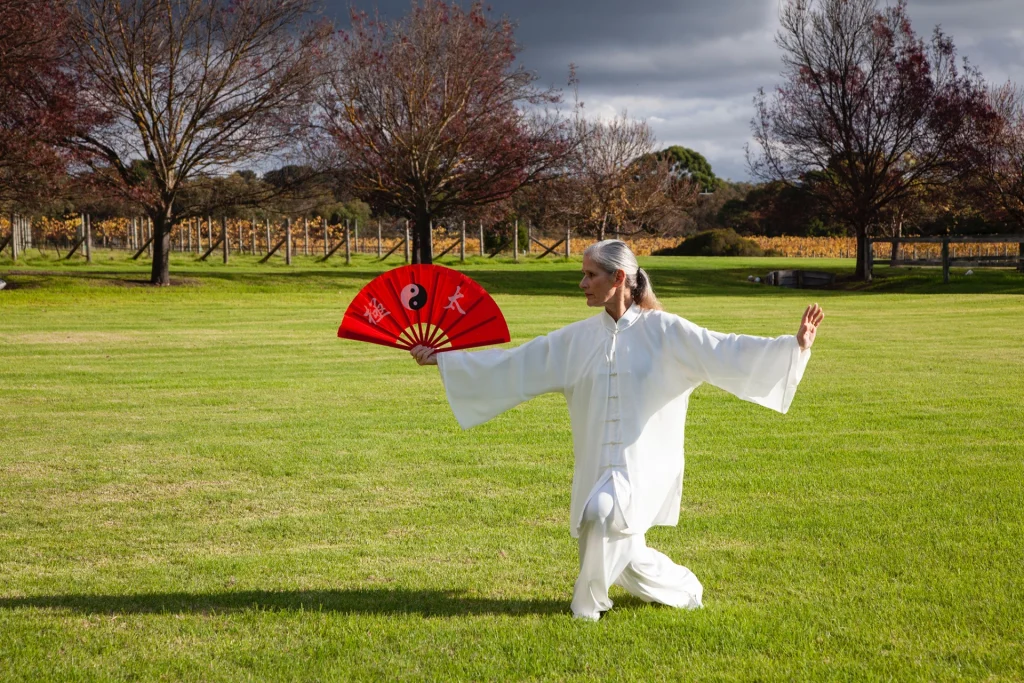
comparing the ancient arts
Tai Chi is a sequence of movements called a ‘Form’. It may take years to learn a Form and even more time to learn how to teach it. Qigong exercises are often stationary so they can be more suitable for a studio or gym session, and the exercises can be stand-alone, meaning they are easier to learn and remember. Tai Chi is based on kung fu and therefore has martial applications, whereas Qigong is softer and not associated with self-defense. Given these differences, Qigong exercises, rather than Tai Chi, are likely to be most appropriate to incorporate into a PT program. By including these types of exercises into your clients’ training regimens, you can empower them with effective tools to skillfully navigate and manage everyday stress and anxiety.
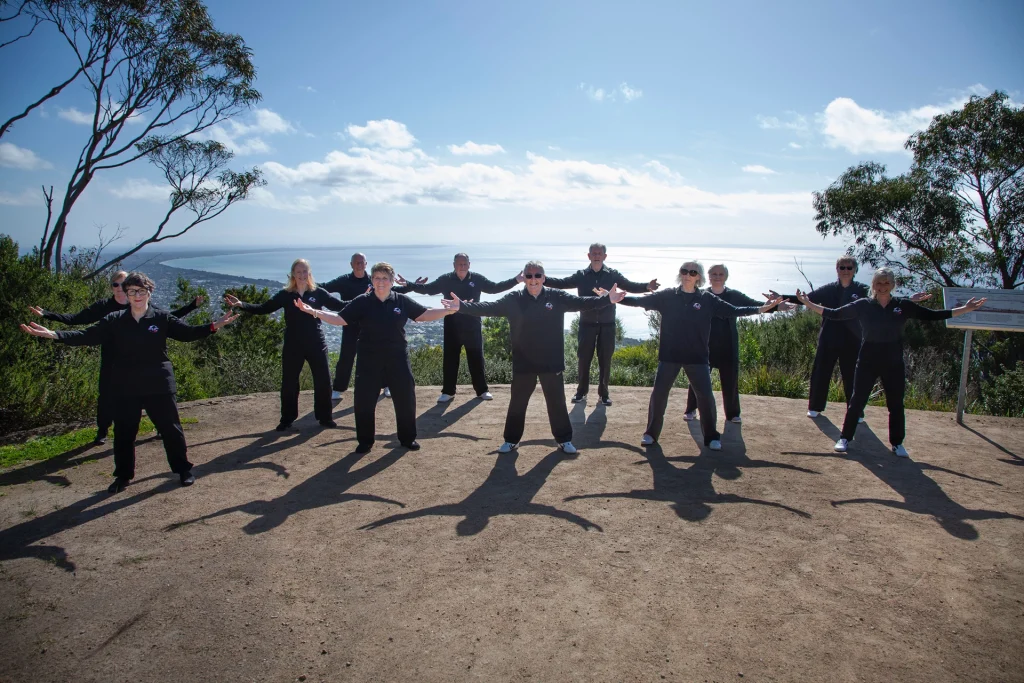
practising Qigong
‘Qigong’ literally means ‘energy work’. It involves a combination of physical postures, breathing techniques and mental focus to cultivate and balance the body’s vital energy, known as ‘Qi’ or ‘Chi’. These exercises are part of Traditional Chinese Medicine (TCM) and they have been practised for thousands of years. Exercises can be as simple as making slow circles with your arms while focussing on the breath. Or, we can visualise holding a ball at chest height, which expands with every inhale and then grows smaller with every exhale. Eyes can be closed, imagery can be of clouds, mountains, a stream or birds flying. Qigong has become a worldwide practice. As a trainer you can provide 5 or 10 minutes of mindfulness before or after your training sessions.
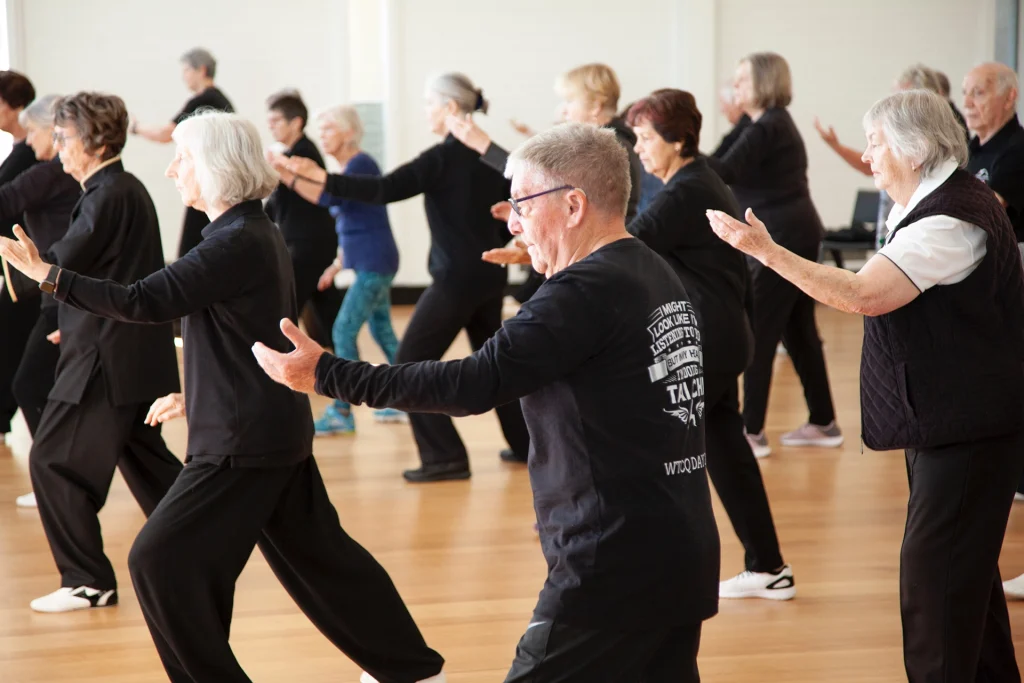
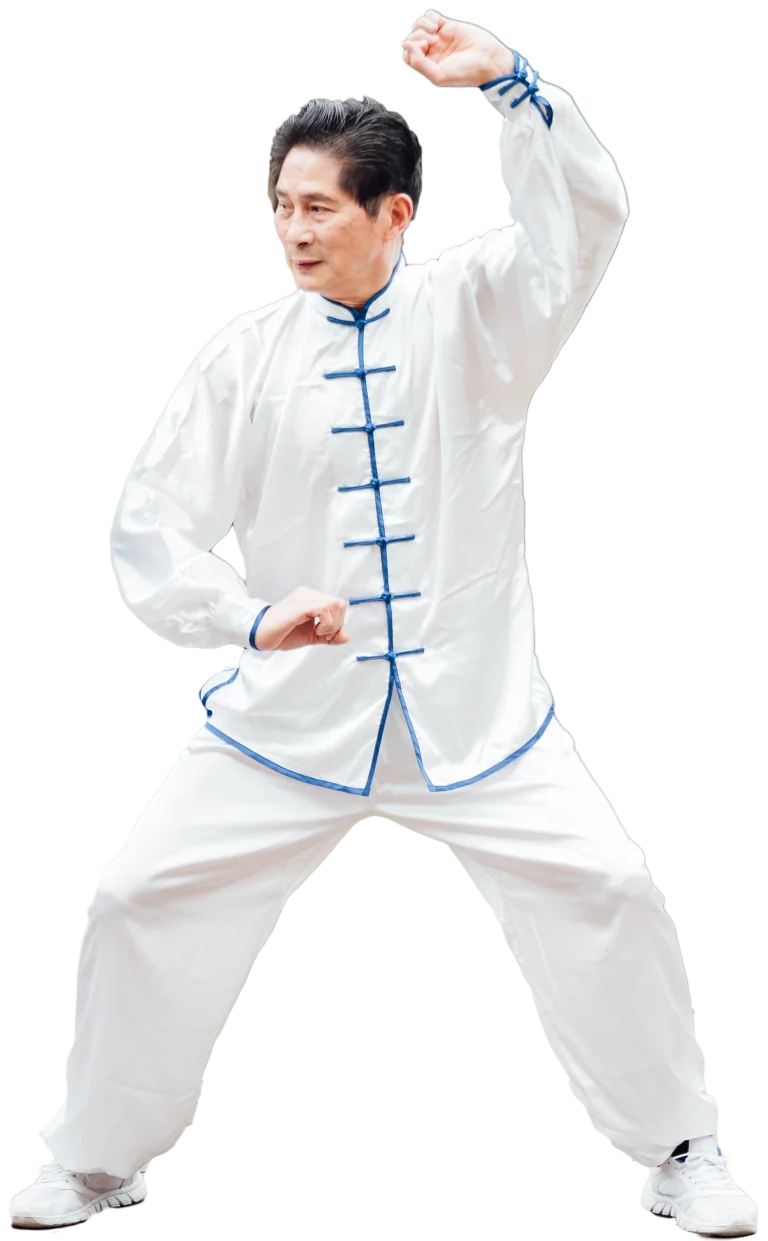
Following are key points that explain how Qigong exercises can assist in a client’s physical health as well as mental wellbeing.
Stress Management
In a world that often feels like a constant rush, the calming and meditative nature of Qigong provides the ideal balm. By focusing on the present moment and flowing through slow and mindful movements, your clients can find an escape from the pressures of daily life.
Improved Body Awareness
Qigong requires a heightened level of body awareness. Practitioners become more attuned to their body's movements, alignment, and posture. This increased self-awareness extends to daily life, resulting in better posture and reduced physical tension.
Improved Balance
One of the most apparent physical benefits of Qigong is improved balance. The slow, constant movements and shifting of weight from one foot to the other help to strengthen the core and enhance stability and confidence to move.
Improved Flexibility
The slow and controlled movements of Qigong promote flexibility and joint mobility. The gentle stretching and range of motion exercises help maintain or increase flexibility, which is essential for overall physical health.
Increased Self-Confidence and Self-Esteem
As individuals become more proficient in Qigong, they often experience a boost in self-confidence and self-esteem, as well as a sense of accomplishment.
Improved Cognitive Function
Beyond the physical realm, these practices offer significant cognitive benefits.
Improved Focus
Qigong exercise require concentration. This mental discipline can enhance the ability to focus not only during practice but also in daily life. It can help clear the mind and improve decision-making skills.
Gentle on Joints
The gentle, flowing movements are easy on the joints, making these practices an excellent choice for people with joint issues or arthritis. Qigong practice also encourages correct alignment of joints, with clients learning how to move while maintaining good posture.
Adaptable for All Levels of Ability and Mobility
These practices are highly adaptable. Qigong and Tai Chi can be modified to suit your client’s level of ability and mobility. This inclusivity allows people of all ages and fitness levels to enjoy their benefits.
Cultivates Good Breathing Patterns
Proper breathing is a cornerstone of Qigong. Learning to breathe deeply and rhythmically helps oxygenate the body and reduce stress. It can lead to better respiratory health and overall vitality.
Rehabilitation Exercises
The slow, controlled movements of Qigong can be used for rehabilitation purposes. They are often recommended by healthcare professionals to aid in the recovery from injuries, surgeries, or chronic conditions.
Time-Efficient
Qigong exercises can easily be integrated into a training session, as they can be used as a gentle warm-up or cool-down.
Providing Qigong exercises can demonstrate your efforts to provide an holistic wellness program for your clients – something that is more important than ever in today’s high-pressure society. Incorporating Qigong exercises into your sessions can provide you with a unique point of difference – giving your clients an opportunity to destress and slow down, while improving balance, self-confidence, and cognitive function.
Gaining insight into the principles of effective breathing, energy pathways and energy flow requires study and research for both learning and teaching Qigong, so before introducing Qigong exercises to your clients, it is highly recommended that you undertake some form of training with an organisation such as Rising Moon Tai Chi School.

Jenny Harrison
Jenny is the founder of Rising Moon Tai Chi School, which is based on the Mornington Peninsula (VIC). The School offers classes in Qigong, Shibashi, Sun and Yang style tai chi, including Beijing 24 and Long Form. It also delivers accredited instructor training courses for fitness professionals and tai chi students whose ambitions are to run their own tai chi classes. Jenny has been studying and practising Tai Chi and Qigong for over 20 years. She is an accredited instructor in a number of bare hand, weapons and Qigong forms, an approved Tai Chi sword instructor, and she has completed the Tai Chi for Mental Health and Cognitive Improvement course through Exercise Medicine Australia, as well as their Tai Chi for Health and Falls Prevention course. Jenny is also the first accredited instructor for Wudang Bamboo Form.